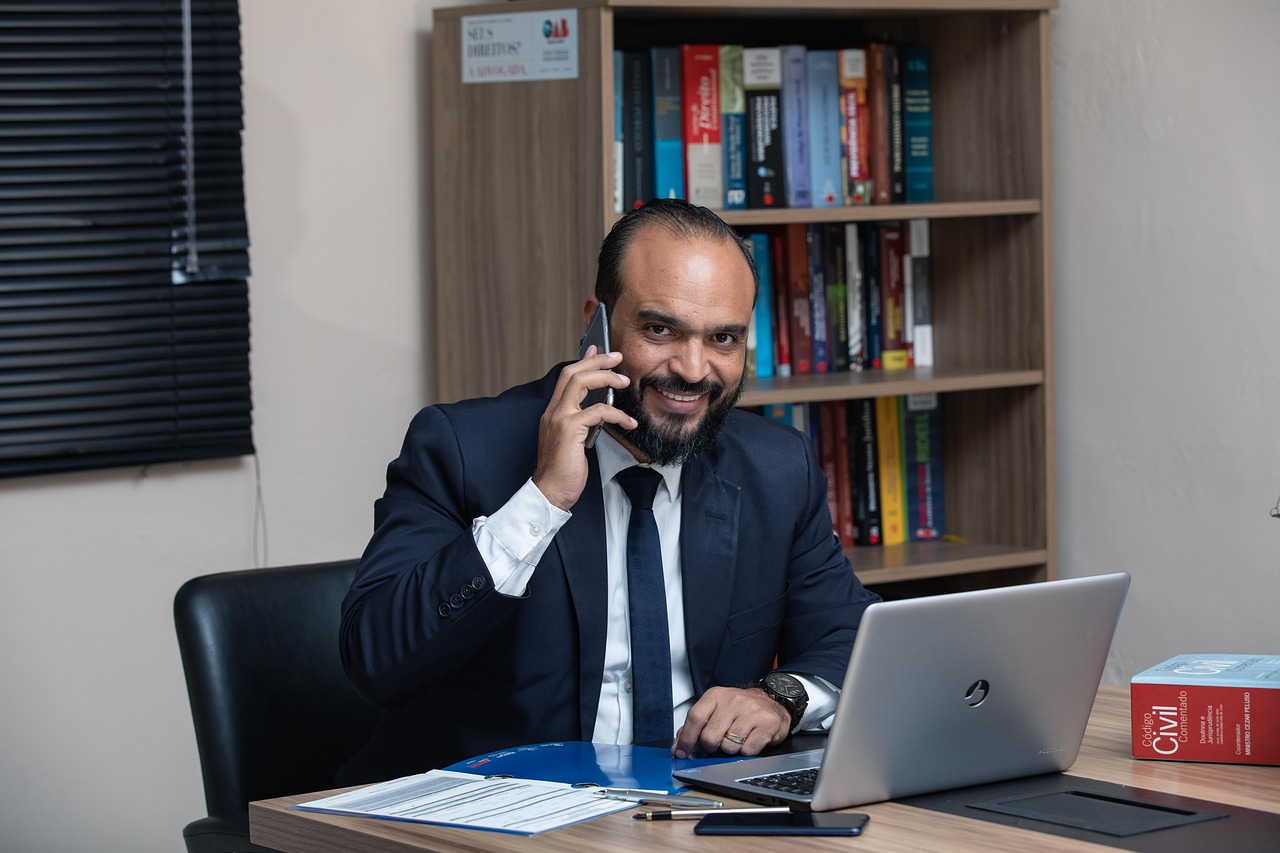Now Reading: How a Rape Defense Lawyer in Cleveland Can Protect Your Rights
-
01
How a Rape Defense Lawyer in Cleveland Can Protect Your Rights

How a Rape Defense Lawyer in Cleveland Can Protect Your Rights
Facing a rape accusation is one of the most serious and life-changing situations anyone can experience. The emotional strain, public stigma, and potential criminal penalties can be devastating. In such a challenging moment, understanding your rights and obtaining strong legal representation is absolutely critical. An experienced rape defense attorney in Cleveland can help ensure that you receive a fair trial, that your constitutional rights are upheld, and that your side of the story is fully heard.
Understanding Rape Charges and Their Severity
Rape, as defined under both Ohio law and general criminal statutes, involves engaging in sexual conduct with another person without consent. According to Wikipedia’s overview of rape, these offenses are often treated as among the most serious crimes in any jurisdiction due to the physical and psychological harm they may involve.
In Ohio, rape is classified as a felony of the first degree, carrying penalties that may include years or even decades of imprisonment, substantial fines, and mandatory registration as a sex offender. Beyond the legal penalties, those accused of rape face long-lasting damage to their reputation, relationships, and career prospects—often before a court has even rendered a verdict.
That’s why immediate legal representation is essential. A knowledgeable defense lawyer can intervene early, protect your rights, and begin crafting a strategy to challenge the prosecution’s case.
The Importance of Legal Representation
Many individuals accused of serious crimes underestimate how quickly a case can escalate. Once charges are filed, prosecutors will begin building their case immediately, often using evidence gathered by law enforcement before an arrest. Having a defense lawyer from the very beginning ensures that someone is advocating for your interests at every stage.
Protecting Your Rights from the Start
From the moment of arrest or questioning, every statement you make can be used against you. Police officers may appear friendly, but their goal is to gather information that strengthens the prosecution’s case. Without legal counsel, you could unknowingly provide statements or consent to searches that harm your defense.
Your lawyer’s role begins here—ensuring that your constitutional rights under the Fourth, Fifth, and Sixth Amendments are protected. They will advise you when to remain silent, ensure you are treated fairly during interrogations, and challenge any improper procedures that violate due process.
Building a Strong Defense Strategy
Defending against a rape charge requires a deep understanding of both the law and the evidence involved. Each case presents unique circumstances, and the defense strategy must be tailored accordingly.
Investigating the Allegations
A defense attorney conducts a detailed, independent investigation into the accusations. This process may involve reviewing police reports, forensic evidence, witness statements, and digital communications. In some cases, inconsistencies in the accuser’s account or flaws in the collection of evidence can reveal weaknesses in the prosecution’s case.
Your lawyer may also work with private investigators, forensic experts, or psychologists to analyze evidence and provide testimony that supports your defense. For instance, DNA evidence, phone records, or surveillance footage may help establish that the alleged incident did not occur as claimed—or at all.
Challenging the Prosecution’s Evidence
Prosecutors often rely heavily on witness statements and forensic results. However, this evidence is not infallible. Improperly handled DNA samples, unreliable witness memories, or biased interpretations can all lead to wrongful accusations.
A skilled attorney will scrutinize how evidence was obtained and whether police followed proper chain-of-custody procedures. If constitutional violations occurred—such as unlawful searches or coercive interrogation tactics—the attorney can file motions to suppress that evidence, weakening the prosecution’s case.
Exploring Alternative Explanations
In some cases, what appears as non-consensual activity may be a misunderstanding. Consent is a central element in rape cases, and proving the absence of consent can be complex. Your attorney may gather evidence demonstrating that any sexual contact was consensual or that the accuser’s memory or perception of the events is unreliable.
Text messages, social media exchanges, and prior communications can all serve as key pieces of evidence in these cases. A careful legal review ensures that the full context is presented in court, not just selective details that favor the prosecution.
The Emotional and Social Toll of Rape Accusations
Even before trial, those accused of rape often face public scrutiny, job loss, and strained family relationships. Unfortunately, society tends to judge first and ask questions later. Having a defense lawyer not only protects you legally but also helps manage the broader consequences of the accusation.
Managing Media and Public Perception
In today’s digital age, criminal allegations can spread rapidly online and through news outlets. A defense lawyer can handle communication with the media, helping to prevent misinformation and safeguarding your reputation while the case is pending.
Your attorney may also advise you to limit social media activity and avoid discussing your case publicly. These precautions help ensure that nothing you say can be misconstrued or used against you later.
Supporting Emotional Recovery
Facing criminal charges—especially for a sensitive crime like rape—can be emotionally overwhelming. Defense attorneys often connect clients with counselors or support networks to help them cope with the stress and anxiety of legal proceedings. Managing emotional well-being during this time is essential for staying focused and making clear decisions about your defense.
The Role of Plea Bargains and Trial Representation
Not every rape case goes to trial. Depending on the circumstances and available evidence, your lawyer may negotiate with prosecutors to reach a plea deal that minimizes penalties or avoids certain charges.
Evaluating All Legal Options
Your defense lawyer will carefully review every available option—whether it’s seeking dismissal of charges, negotiating a plea, or taking the case to trial. The right approach depends on factors such as the strength of the prosecution’s evidence, witness credibility, and the potential consequences of a conviction.
Representing You in Court
If your case proceeds to trial, your attorney becomes your primary advocate. They will cross-examine witnesses, present expert testimony, and argue before the jury on your behalf. Their objective is to create reasonable doubt by exposing inconsistencies, lack of evidence, or procedural errors.
An attorney’s courtroom experience, knowledge of Ohio’s criminal law, and ability to communicate persuasively can have a profound effect on the outcome. Firms such as HMW Law exemplify the kind of experienced representation needed to handle these complex and emotionally charged cases.
The Long-Term Impact of a Conviction
A rape conviction extends far beyond immediate sentencing. In Ohio, convicted offenders are typically required to register as sex offenders, often for life. This label restricts where individuals can live or work and severely limits personal freedoms.
Additionally, a criminal record can prevent future employment, affect family relationships, and create lasting social stigma. That’s why mounting an aggressive and well-prepared defense is not just about avoiding jail—it’s about preserving your future.
Seeking Post-Conviction Relief
If a conviction does occur, your lawyer can explore post-conviction remedies such as appeals or sentence modifications. In some cases, new evidence or procedural errors may justify revisiting the verdict. Your attorney’s continued advocacy can help ensure that every legal option is pursued.
Taking the First Step Toward Protecting Your Future
Being accused of rape does not mean you are guilty—but it does mean that your future is at risk. Acting quickly and securing strong legal representation gives you the best chance to protect your rights and rebuild your life.
A skilled defense attorney will guide you through the legal process, safeguard your constitutional rights, and fight tirelessly for your freedom and reputation. In the face of such serious allegations, having an experienced lawyer by your side isn’t just helpful—it’s absolutely essential.
By understanding the charges, asserting your rights early, and working closely with a capable defense team, you can face the legal system with confidence and take control of your future.
About the author: Mark Scott
With a law degree under his belt, Mark Scott understood very early that law communication was a relatively neglected area. He decided to help people by “translating” the language and offering information and advice in a clear, useful, and actionable manner. For this reason, instead of finding him in court, you will most likely find his name online, where he is very active and thriving as a legal columnist. His part of making the world a better place is to make the law a less convoluted maze. He aims to make it easier for people to understand when and how to seek legal counsel, how to proceed in a significant number of legal matters, and to find the proper resources so they can stand up for their rights.











